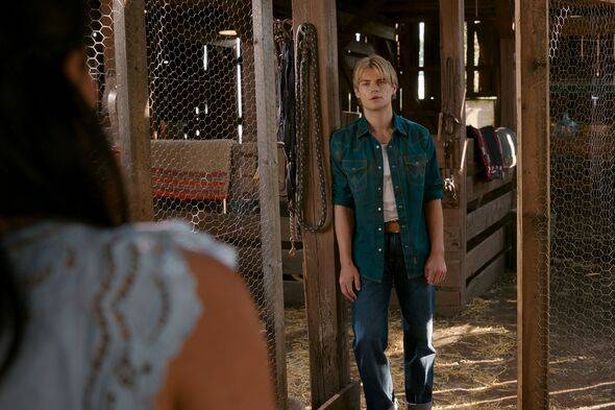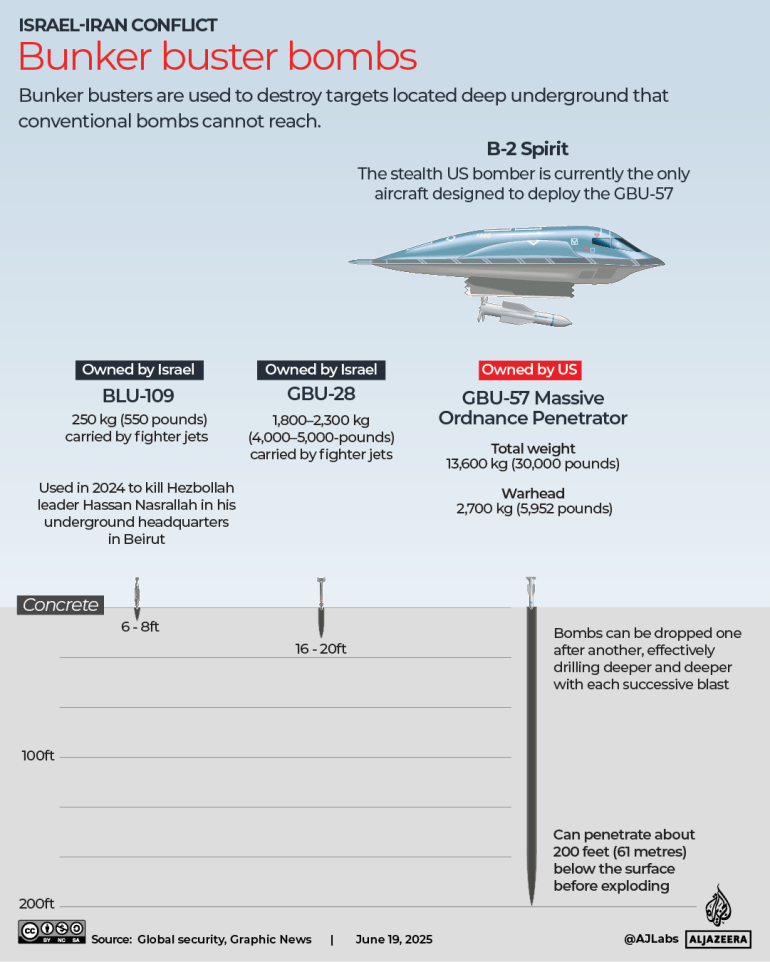Washington, DC – Over the past week, United States President Donald Trump has been issuing statements on Iran that appear to be contradictory.
He has called for ending the war and hinted at peace coming “soon”, only to then suggest that assassinating Iranian Supreme Leader Ali Khamenei could be an option for the US along with joining Israel’s bombing campaign.
In the latest turn, the White House said on Thursday that Trump will make a decision on whether to join the war within two weeks.
These changes in the president’s stance have some observers thinking that Trump may not have a clear strategy or endgame; rather he is being dragged to war by Israeli Prime Minister Benjamin Netanyahu, who has been seeking US attacks on Iran for decades.
Alternatively, could Trump be using his increasingly bellicose rhetoric against Iran to compel Tehran to agree to entirely give up its nuclear programme?
If so, experts warn that brinkmanship could turn into an all-out war between the US and Iran.
Jamal Abdi, president of the National Iranian American Council, said Trump could be attempting to build leverage with threats to strongarm Iran into accepting his demands of “total surrender”.
“I think he’s trying to present himself as this madman who is unpredictable, and in so doing, he can then insist on this very hard line that Iran has refused to accept for decades of full dismantlement of its enrichment programme,” Abdi told Al Jazeera.
Another possible explanation of Trump’s latest statements, Abdi added, is that he is “being taken for a ride by Bibi Netanyahu to commit the United States to a full-on war with Iran”.
‘He says one thing. He does another’
Iranian American analyst Negar Mortazavi also said that Trump is being “outmaneuvered” by Netanyahu.
“I don’t even know if President Trump knows what he wants,” Mortazavi told Al Jazeera.
“He campaigned as the president of peace … he promised he’s going to end conflicts. Russia-Ukraine hasn’t ended. Gaza has escalated, and he just let the third big Middle East war – which looks like a regime-change war – start under his watch. So, he says one thing. He does another.”
Israel launched its bombing campaign against Iran last week, two days before US and Iranian officials were set to meet for a sixth round of talks in Oman.
Hours before the Israeli assault began, Trump renewed his commitment to diplomacy. And the initial US response to the Israeli strikes was to stress that Washington is not involved in the attacks.
In subsequent days, however, Trump appeared to take credit for the Israeli bombing campaign.
“We now have complete and total control of the skies over Iran,” he wrote in a social media post on Tuesday, without elaborating on who the “we” was.
“Iran had good sky trackers and other defensive equipment, and plenty of it, but it doesn’t compare to American made, conceived, and manufactured ‘stuff.’ Nobody does it better than the good ol’ USA.”
Israel’s strikes have targeted Iran’s air defences, military and nuclear facilities, oil infrastructure and residential buildings, killing hundreds of people, including top military and political officials as well as many civilians. Iran has responded with hundreds of ballistic missiles that have killed at least 24 Israelis and left widespread destruction across the country.
Israeli officials claim they are trying to destroy Iran’s nuclear and missile programmes, but also note that their military campaign could lead to the collapse of the Iranian governing system, which they say would be a welcome development.
However, it is widely believed that Israel would need US help to destroy Iran’s main uranium enrichment facility, Fordow, which is buried inside a mountain.
Mortazavi said war hawks and Israeli officials appear to be making the case to Trump that bombing Fordow will be an easy task.
“Instead of a regime change war – a devastating, unnecessary war with Iran, which he has been warning everyone and running against in his campaigns, they’re just making this look like, ‘Oh, you just use your bunker busters once and done.’”

But Iran has promised to retaliate harshly against any US attack.
Thousands of US troops in the region could come under Iranian missile strikes. If the war escalates, Iran could also disrupt shipping lanes in the Gulf – a major lifeline for global energy.
Iranian lawmakers have already suggested that Iran could close the Strait of Hormuz that connects the Gulf to the Indian Ocean and through which 20 percent of the world’s oil flows.
‘Catastrophic’ war
Mortazavi said escalating the conflict will have “catastrophic” consequences for the region.
“It will look like Iraq and Afghanistan combined, if not worse. Iran is a big country,” she said.
In Iraq, Bush’s regime-change war led to years of sectarian bloodshed and the rise of groups like ISIL (ISIS). In Afghanistan, US forces fought for 20 years after deposing the Taliban from the capital Kabul, only to see the group swiftly return to power as US troops withdrew.
Even if Iran’s governing system is toppled under US and Israeli blows, experts warn that US war hawks should be careful what they wish for.
Iran is a country of more than 90 million people. The fall of the government could lead to internal conflict, displacement crises and regional – if not global – instability, analysts say.
“This is not a colour revolution. This is going to be war and chaos, potentially civil war, and unrest,” Mortazavi said.
Sarah Leah Whitson, executive director of the rights group DAWN, said that even if Trump is trying to gain leverage with his threats and is not seeking war or regime change in Iran, it’s a risky strategy.
“The possibilities of the assaults on Iran escalating into not just a broader regional war, but potentially a global war, are extremely high,” Whitson told Al Jazeera.
“And so, continued belligerence and hostile rhetoric from President Trump is only throwing fuel on the fire.”




